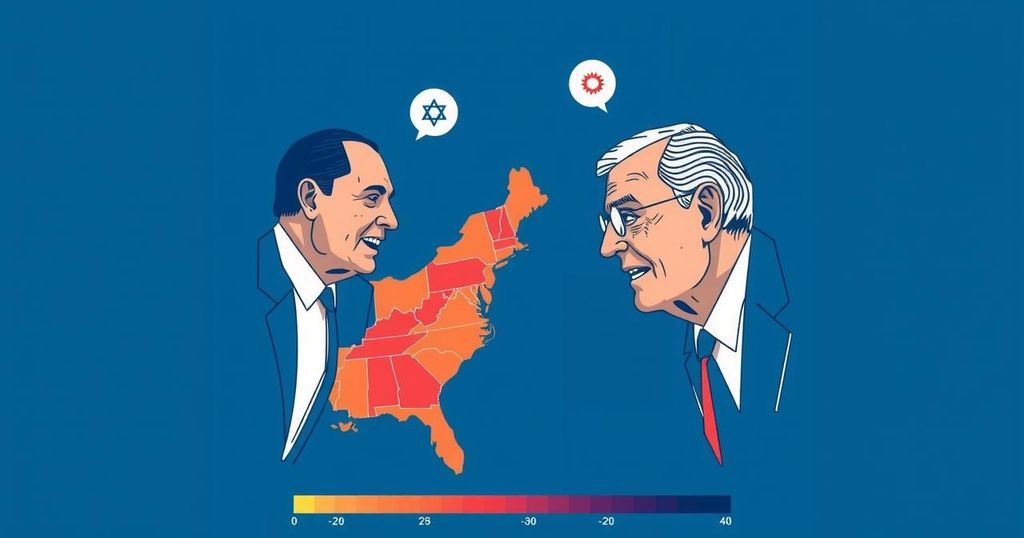As Israel contends with ongoing conflicts in Gaza and Lebanon, the November U.S. election emerges as a crucial event that could influence U.S. foreign policy in the region. Israeli citizens express varied opinions on how the election results might shape their nation’s relations with its key ally, the United States, particularly under a far-right government. The outcomes of these electoral choices are heavily scrutinized due to their potential impact on national security and the geopolitical landscape of the Middle East.
As the conflict in Gaza and Lebanon intensifies and Israel navigates leadership under a far-right government, the ramifications of the upcoming U.S. election are of paramount concern to Israelis. This heightened geopolitical tension has instigated discussions regarding America’s pivotal role in the region. Individuals within Israel express a range of views on how the election results might influence U.S. foreign policy and, consequently, the stability of the Middle East. The sentiments among Israelis reflect both apprehension and hope regarding the electoral prospects. Some citizens foresee potential shifts in American strategies that could either bolster or undermine Israel’s security framework. The widespread acknowledgment of the United States as a historical ally brings a complex layer of dependency on the electoral outcome. Interviews conducted with a diverse array of Israelis reveal that the voting dynamics in the U.S. are regarded as critical elements shaping the future course of our nation’s foreign relations and strategic decisions. Furthermore, there exists a keen awareness that the ideological leanings of the elected officials may lead to significant policy changes, particularly concerning Israel’s approach to ongoing regional conflicts and peace negotiations. Coupled with a conservative government in power, Israeli citizens are engaging in serious dialogue about the implications of potential U.S. leadership, highlighting the interconnectedness of domestic and foreign policies in this turbulent period.
The current political landscape in Israel is marked by its involvement in ongoing military operations in Gaza and Lebanon, alongside governance by what is widely termed the most right-wing administration in its history. This context sets the stage for Israeli citizens to closely monitor the U.S. presidential election, recognizing its capacity to shape U.S. policy towards Israel and its regional conflicts. The U.S. has traditionally been an ally of Israel, providing significant military, financial, and diplomatic support. However, the election outcome may represent a watershed moment that could change this dynamic, prompting a nationwide discourse on national security, regional relations, and the future trajectory of foreign policy.
In summary, as Israel grapples with its current conflicts and the influence of a right-wing government, the outcome of the U.S. elections is perceived as a critical juncture in determining future U.S. foreign policy in the Middle East. The perspectives of Israelis underscore the complexities of international relations and the significant impact of the electoral process on national security discussions. With the election rapidly approaching, these discussions will likely continue to evolve, reflecting a deep engagement with issues that have direct implications for Israel’s future.
Original Source: www.cbsnews.com






